Set the Right 'Rules of the Game' – and Succeed in Your Global Operations
Does your company already operate internationally? Or are you planning new cross-border and cross-cultural activities in the future? Read about how to avoid confusion, misunderstandings and a lot of wasted time.
By Annette Dahl, CEO and Chief Trainer, C3 Consulting
Imagine you’re with a group of friends who want to play Monopoly. But someone has taken away the Monopoly board and replaced it with the board from Trivial Pursuit. You decide to play anyway and use the Trivial Pursuit board with the Monopoly rules.
So what happens?
You get started, but the game goes very slowly, and confusion and misunderstandings constantly arise. The game may grind to a halt.
Hopefully you’ll figure out quickly that this isn’t working. Then you can talk about how to adapt the Monopoly game rules to match the new game board. If you’re very clever, you may end up with a new game that’s even more fun than both Monopoly and Trivial Pursuit.
And what does this have to do with your global activities? Quite a bit.
We experience that many companies trying to work globally tend to make all the 'game rules' – like strategies, values, and processes – based on their home game board. And then without thinking about it, they transfer the rules to an entirely different game board – such as their subsidiaries located around the world.
Then what happens?
Work gets started in the local subsidiaries, but it moves forward very slowly, and confusion and misunderstandings constantly arise. The work may grind to a halt.
How does a company working globally avoid ending up in this kind of situation? Read more below!
Know your game boards and game rules
When you work globally, you need to start by getting to know your game boards and game rules.
This is true no matter what type of global activities you’re involved in. Maybe you plan to start production up in a new country, establish sales offices on several continents, or enter an entirely new market.
Let’s say you’re a company with your head office in Denmark, and you’re in the process of establishing a subsidiary in China. Start by looking at the Danish game board. Pay attention to: Which laws and rules apply in Denmark? What is the relationship between companies and the authorities? How is Danish society set up? Is there a social safety net? And so on.
Then look at all the rules you play by in your Danish organization. How do you run projects, manage, communicate, co-operate, make decisions, hold meetings and train new colleagues?
Some of the rules are probably visible, because they’re written in your corporate values statement, your strategy papers, process descriptions, and other documents you already have.
But at least as important are the invisible game rules, which you might not even be aware of: These are your cultural 'blind spots'. This will typically be something you do just because you’ve always done it. And because it seems like 'common sense'. For example, giving your opinion when asked to at a meeting. Or involving your employees when you make decisions as a manager.
Once you begin to understand your home game board and game rules, you can start to look at the Chinese game board – and think about whether it makes sense to transfer your existing game rules to a new game board.
One example:
In your Danish head office you have just developed a new Performance Management structure you’d like to implement globally so you can compare your units around the world. Unfortunately, it seems the employees in the Chinese subsidiary aren’t coming anywhere near the performance goals you had expected.
Now you take a step back and realize that the new structure doesn’t match the Chinese game board very well. The Chinese rules when it comes to taxation of bonuses are very different from the Danish ones, and in general Chinese workers are motivated by very different things than employees in your Danish head office. That means your Performance Management structure should be put together entirely differently to encourage your Chinese employees to perform better.
The conclusion: Even if the goal is the same throughout your organization – improving your employees’ performance – the path to that goal must be adapted for different game boards.
Some companies that have operated globally for many years see themselves as entirely global. If we look at the Denmark-based company from before, that’s probably how they think in the Danish headquarters: At our company, we don’t use particularly Danish or Chinese game rules, but global game rules that apply for our entire global organization.
But watch out again for those cultural blind spots! Danish game rules don’t become global just because someone writing a strategy paper replaces the word 'Danish' with 'global'. Are your game rules created in the Danish headquarters, based on a Danish frame of reference, and grounded in how things are generally done in the Danish organization? Then there’s a serious risk that they won’t work well in a global context.
Adapt the rules of the game so they work
Now that you understand what game boards and game rules you are dealing with, the hard work begins. You’ll now need to find out which of the game rules from your home game board you can transfer to the new game board, which game rules should be adapted, and how they should be adapted.
Some times there are, of course, rules that cannot be tampered with. These might be safety rules, rules that involve taking care of the environment, or other areas where things MUST be done in a certain way – even if such matters are often approached differently elsewhere in the world.
But if there isn’t a compelling reason to transfer your domestic game rules to your subsidiaries elsewhere in the world, be as open and as flexible as possible!
There are typically lots of areas, large and small, where it can be advantageous to adapt your game rules. It could be:
- How you make deals. Maybe you’re used to the idea that a deal has been made when you’ve hammered out a contract and it’s been signed by both parties. But in other parts of the world, the validity of a deal has much more to do with the relationship between the two people who are negotiating it.
- How you market your product. Think about whether the young guy with the T-shirt and the stubble beard who looks cool in a Danish context also works well on brochures for other markets. Maybe in their eyes he looks sloppy and unprofessional.
- What type of management style you use. Does the usual Danish management style, where assignments and responsibility are largely delegated, create motivation and work satisfaction for employees at your subsidiaries around the world? Or does it create insecurity and mistrust in the managers’ abilities?
And the list goes on.
Make it a habit that when you work with any type of strategy, values, processes or action plans that need to be rolled out globally to ask yourself: Am I certain that these game rules will work on our other game boards around the world?
The last step is to find out HOW the game rules should be adapted.
Get people involved from the local units who know the different game boards from around the world. This may seem obvious. But we actually see very often that strategies, action plans, processes etc. are put together in the company’s headquarters without the involvement of the local subsidiaries where the whole thing was supposed to be implemented.
If we again use the example of the Danish-based company with a subsidiary in China, it makes sense to get the local players on board from the beginning, and find out what type of game rules will apply in the new subsidiary. Which of the Danish rules does it make sense to transfer? In what areas should the Chinese game rules apply? Could there be a need for entirely new game rules, and if so what should they look like?
To 'negotiate game rules' can be a challenging process, especially since the way we approach the process can depend on which game rules we are used to: How we negotiate. How we make decisions. And how we motivate people to offer knowledge and opinions (see our article here for inspiration on how to do this).
But challenging or not, it’s a necessary process if you want to succeed with your global activities. Even if it seems to demand a lot of time, it takes a lot more time to start with a 'one-size-fits-all' approach that doesn’t actually work in practice and where there are constant misunderstandings.
You also risk creating mistrust and frustration among the local managers if they’re not involved but expected to implement initiatives that don’t match their local game boards.
When you discuss how to adapt the game rules to the new game board, remember it’s not about 'who’s right'. It’s not about proving that OUR game rules are best, or THEIR game rules are best. It’s about creating some game rules that actually work, so that you BOTH win the game.
And if you’re very clever, you may end up with an entirely new way of doing things that’s even more fun, more dynamic and more productive than the original set of game rules.
Enjoy!
Do you have experiences you’d like to share about how to be successful with your international activities? Or do you have questions or commentary about this blog post? Contact me at ad@c3consulting.dk or by telephone at +45 6017 0817.
I look forward to hearing from you!Annette Dahl, CEO and Chief Trainer at C3 Consulting

